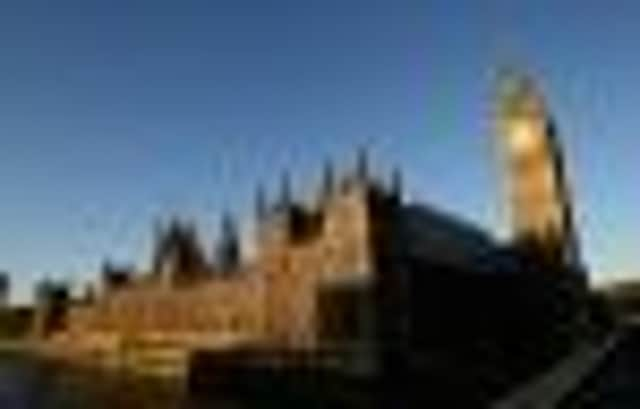George Kerevan: One hundred years is a long time in politics


THE most likely for an independence referendum, 2014, is also the centenary of a long-forgotten but highly significant event in Scottish politics. A century ago, on 15 May 1914, MPs at Westminster (under a Liberal Government) gave a second reading to a Bill granting Scotland Home Rule within the British Empire.
Had the war to end wars not intervened that hot, fateful August, this Bill would likely have become an Act of Parliament. Along with the Dominions in Canada, Australia and New Zealand, Scotland would have taken its place as a self-governing nation inside the British Empire, looking to the Imperial Parliament for foreign policy and external defence. Indeed, in the Home Rule debate, it was proposed that Westminster become a parliament for England, and a new Imperial Parliament created with representatives from all the Dominions.
Advertisement
Hide AdAdvertisement
Hide AdI’m bemused by the retreat of today’s Liberal Democrats from such a grand political vision. Liberal elder statesman Menzies Campbell occasionally refers to his party’s commitment to UK federalism but never explains how that would be possible when the English are not culturally or politically minded to split themselves into regions.
Tavish Scott, ex-leader of the Lib Dems at Holyrood, is now touting what he calls devo-plus. This leaves old age pensions and National Insurance with Westminster – two powers specifically handed to Scotland in the 1914 Liberal legislation. A century on from the Government of Scotland Bill, the Liberals lack a coherent model of constitutional reform to counter the SNP’s separatism.
But the SNP has its own constitutional conundrums. It wants to keep sterling after independence. This is sensible to retain business and consumer confidence. But a common monetary zone requires close co-ordination of fiscal and monetary policy between Scotland and the rest of the UK (RoUK). That, in turn, requires a very sophisticated mechanism for economic and political co-operation. As does defence and security policy, not to mention Alex Salmond’s desire to have Scotland export renewable energy south of the border.
So far, the SNP has implied such collaboration could take place via the existing British-Irish Council, which actually has its secretariat in Edinburgh. The council is an evolving body but is at root still a mechanism to facilitate a political dialogue between the UK, the Irish Republic and Northern Ireland. As such, it will not serve to manage the more complex economic and security relations between Scotland and RoUK.
The issue is not really about bureaucratic machinery per se, but the political nature of the long-term partnership between independent Scotland and RoUK. And much as many Nationalists will hate to hear it, that partnership is going to be very close. If you start with the notion that Scotland and RoUK are going to share a currency, a market, free movement of people and capital, a domestic security policy and a common monarchy, then you are verging on something like a… say the word… confederation. In other words, something akin to a modernised form of the Home Rule of 1914.
Home Rule in 1914 implied subordination to the Mother of Parliaments at Westminster. That is not what I am contemplating here. And in fact, the legal subordination to Westminster of the old Home Rule dominions – Canada, Australia and New Zealand – was ignored in practice by those countries and quietly abolished in the 1930s.
Today, the implication of SNP policy is a close, structured relationship in economics and defence with RoUK. I can’t think of a better term for this than confederation – sovereign counties agreeing to pull sovereignty for specific purposes that benefit each. The precise inter-governmental relationship is usually governed by treaty and decisions are reached only by unanimity. The best modern example I can think of comprises the Benelux countries – Belgium, Netherlands and Luxembourg, who began their arrangement in 1944.
Why then bother with Scottish independence? For the same reasons as a majority of Scottish MPs voted for Home Rule within the (whole) Empire back in 1914. Because Scotland is a distinct polity, culture and economy, and is therefore best governed from Edinburgh and not from 400 miles away by a majority of MPs for whom Scotland is always of second interest.
Advertisement
Hide AdAdvertisement
Hide AdBut there is another reason. Scotland also needs to be able to exert more influence within the British Isles, where the dominance of London swamps every other region economically, politically and culturally. Limited devolution has done nothing to change that. Independence plus a confederal treaty with RoUK would redress the balance.
Reducing the dominance of London would benefit everyone in the present UK. As the SNP’s Fiona Hyslop pointed out yesterday, independent Scotland would naturally ally with the North of England to ensure a high-speed rail link across the whole Island – not just between London and Birmingham, as currently planned.
Is such a confederation possible in practice? One objection is that the difference in size between Scotland (pop. 5 million) and RoUK (pop. 57 million) would create an imbalance of power. Not if all decisions have to be unanimous. Besides, if Scotland goes, don’t expect the status quo to hold in Wales or Northern Ireland. A BBC poll for St David’s Day shows that 64 per cent of people in Wales already want the Welsh Assembly to have power over taxation.
The true barrier to confederation is that politicians in the big Unionist parties, including the Liberals, treat constitutional reform mainly as a defensive manoeuvre against the SNP rather than as an opportunity to modernise their own obsolete, centralist state. Unlike their more imaginative counterparts in 1914.